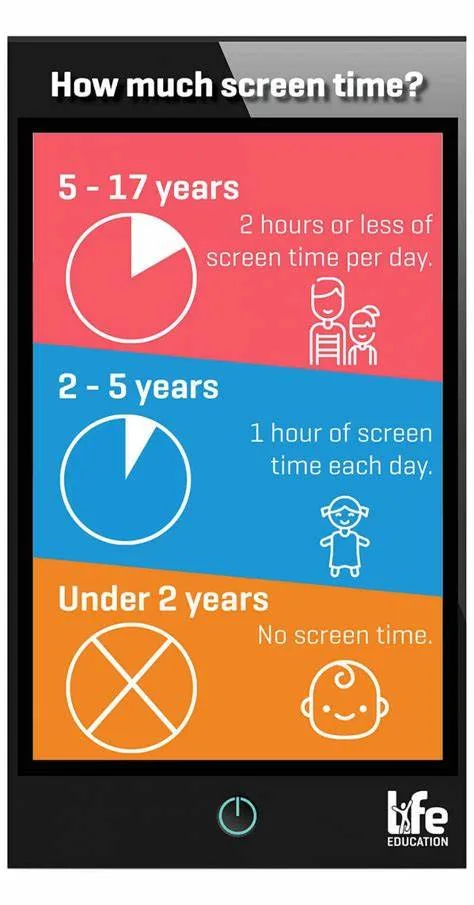In today’s digital age, screen time has become a hotly debated topic, especially when it comes to its impact on children. Concerns have been raised about the potential negative effects of excessive screen time, but it’s essential to recognize that screen time can also have its advantages when used appropriately and in moderation.
This article aims to explore 11 reasons why screen time can be beneficial, debunking some common misconceptions along the way.
1. Educational Opportunities
Screen time can provide valuable educational opportunities for children. With a wide range of educational cartoons, nature shows, science videos, and learning programs available, children can engage with educational content that enhances their knowledge and understanding of various subjects.
2. Speech Development
When parents engage in conversations and language learning opportunities while co-watching shows or playing cooperative tablet games, screen time can contribute to speech development.
Interactive screen time encourages communication and cooperation within immediate family relationships, fostering language skills.

3. Cognitive Skills Enhancement
Moderate screen time can improve hand-eye coordination and problem-solving skills. Certain games and activities on screens require children to think critically, strategize, and solve puzzles, which can have a positive impact on their cognitive development.
4. Stimulates Creativity and Imagination
Exposure to new ideas and situations through screen time can stimulate creativity and imagination in children. Whether it’s through watching imaginative storytelling or engaging with interactive art and design apps, screens can provide a platform for children to explore their creative potential.
5. Respite for Caregivers
For caregivers, screen time can offer a much-needed break and period of respite. Some TV shows and content are designed to relax and entertain children, allowing caregivers to attend to other responsibilities or recharge themselves.
It can provide a balance between caregiver duties and personal well-being.
6. Access to Arts and Culture
Screens bring the arts into the home, providing access to live performances that might otherwise be expensive or challenging for young children.
From virtual museum tours to live theater broadcasts, screens offer children the opportunity to experience various art forms and cultural experiences.
7. Facilitates Social Connections
In today’s globalized world, screens facilitate connection with faraway friends and family. Through video calls and social media platforms, children can stay in touch with their loved ones, fostering meaningful relationships despite geographical distances.
8. Easy Access to Information
Screens provide easy access to information through online resources. Children can quickly search for answers to their questions, eliminating the need to wait for a library visit. This accessibility to knowledge empowers children to be curious learners and expand their understanding of the world.
9. Leisure Activities and Entertainment
Entertainment for the sake of enjoyment is considered acceptable in moderation. Screen time allows children to engage in leisure activities such as watching movies, playing games, or exploring interactive apps that provide entertainment and relaxation.
It’s important to strike a balance between recreational screen time and other activities to ensure a well-rounded experience.

10. Mindful Selection of Content
The key to reaping the benefits of screen time lies in selective content choices. By carefully curating the content that children engage with, parents can ensure that they have access to high-quality, age-appropriate material.
From educational apps to enriching documentaries, the right content selection can make screen time a valuable and positive experience.
11. Moderation and Co-viewing
One of the crucial factors in making screen time beneficial is moderation. Setting reasonable time limits for screen use ensures that children have a balanced routine that includes other activities such as outdoor play, reading, and social interactions.
Additionally, co-viewing, where parents actively engage and discuss the content with their children, can maximize the educational and interactive aspects of screen time.

Conclusion
In conclusion, screen time can provide several benefits when approached with a balanced and mindful perspective. From educational opportunities and cognitive skill development to fostering creativity, screens can play a positive role in children’s lives.
However, it’s essential to prioritize moderation, selective content choices, and active parental involvement to ensure that screen time remains a valuable and enriching experience for children.
Click here for a similar article on the detriments of excessive screen time
FAQs
Q: Is screen time always bad for children?
No, screen time can have its benefits when used in moderation and with appropriate content. It’s important to strike a balance and make mindful choices regarding screen use.
Q: How can screen time enhance cognitive skills?
Engaging in certain games and activities on screens can improve cognitive skills such as problem-solving, critical thinking, and hand-eye coordination.
Q: What role should parents play in screen time?
Parents should actively participate in their children’s screen time by co-viewing, discussing content, and setting limits. They can guide their children towards high-quality and educational material.
Q: How can screen time contribute to social connections?
Screens enable children to stay connected with friends and family, especially those who are far away, through video calls and social media platforms.